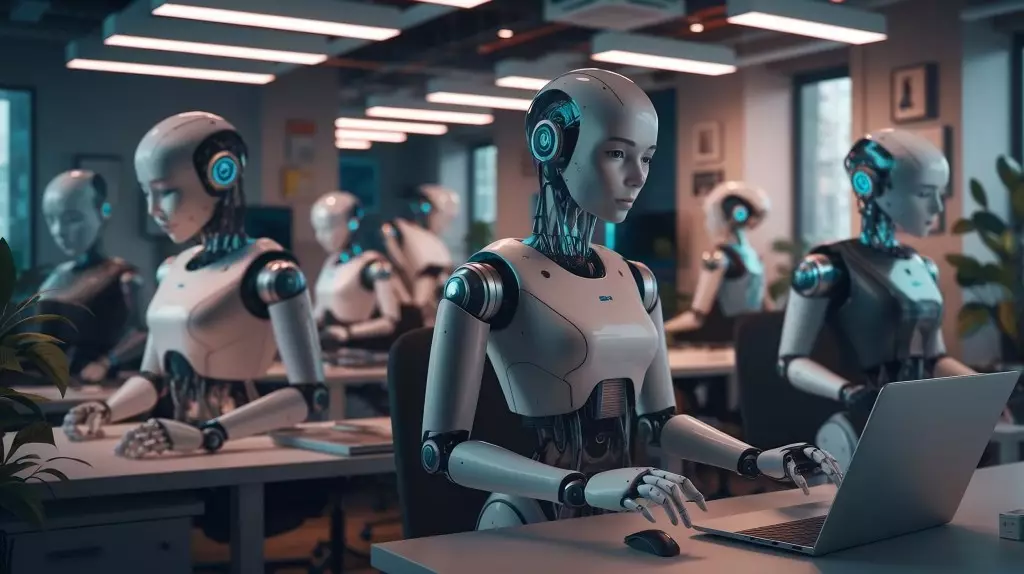The rapid advancement of artificial intelligence is fundamentally reshaping the landscape of software development. Tasks that once defined the entry-level experience — from writing basic scripts to designing simple web pages — are increasingly delegated to sophisticated AI tools like ChatGPT, GitHub Copilot, and Amazon CodeWhisperer. This technological shift doesn’t merely accelerate productivity; it threatens to overhaul the very structure of how aspiring developers learn and grow. What was once a clear trajectory for novices—start with basic tasks, then progress toward complex system design—is now dissolving under the weight of automation.
Rather than viewed as a disruptive threat, this evolution should be perceived as a catalyst for a broader redefinition of skills. The industry is entering an epoch where manual coding for routine tasks is becoming less valuable. Instead, the focus shifts toward understanding systems deeply, structuring problems strategically, and collaborating effectively with AI. This paradigm shift raises critical questions: how will new developers familiarize themselves with the core principles of software? Will traditional coding skills become obsolete, or will they serve as a foundation for more advanced competencies?
In my perspective, the answer lies in a hybrid approach to learning — one where foundational knowledge remains essential but is complemented by an understanding of AI capabilities. Aspiring professionals must prioritize grasping system architecture, problem decomposition, and human-centric design. These skills will ensure that they don’t merely be the enablers of code but strategic thinkers who guide AI tools to produce optimal outcomes. Such a transition demands a reform of educational pathways, emphasizing conceptual understanding over rote memorization and routine coding exercises.
Rethinking Developer Roles and the Value of Human Creativity
The traditional ladder of software careers is being replaced with a more fluid, multidimensional landscape. The stereotype of the junior developer — who spends hours debugging or building basic functionalities — is quickly becoming outdated. Instead, future developers will emerge as hybrids: product strategists, AI orchestrators, and innovative problem-solvers. The core skill set will evolve from writing code for its own sake to translating ideas into actionable solutions with AI as an active collaborator.
This shift brings enormous opportunities but also significant challenges. For one, the emphasis on manual coding decreases, which could lead to a devaluation of rote skills. However, those who adapt will find themselves in highly influential roles—designing systems, managing AI workflows, and shaping product visions. Human ingenuity remains irreplaceable; creativity, critical thinking, and emotional intelligence are assets that AI cannot replicate. The most successful professionals of tomorrow will be those who combine technical fluency with strategic insight, ensuring AI systems serve human-centric goals effectively.
Furthermore, this evolution calls for a cultural change within teams and organizations. Traditional roles—front-end specialist, back-end engineer, QA tester—will blur as AI empowers a single individual to handle responsibilities that previously required multiple specialists. Such a shift moves towards leaner, more flexible teams where strategic decision-making and human oversight take precedence over exhaustive implementation. Human input will gradually transition from the hands-on to the high-level, focusing on defining what needs to be built and why it matters.
Preparing for a New Era of Hybrid Talent
Looking ahead five to seven years, it is evident that the identity of a “developer” will be markedly different from today’s standard. The emergence of integrated roles combining technical skills with design, strategy, and user experience will redefine professional profiles. The key skill will no longer be just coding but understanding how to leverage AI for creative and strategic advantage. In effect, the most valuable talent will resemble a hybrid: a person who can think systemically, interpret user needs, and direct AI productivity.
This does not spell doom for those with less technical experience. On the contrary, it opens pathways for individuals with diverse talents—creativity, problem-solving, strategic thinking—to thrive. Those willing to expand their skill sets beyond traditional coding, to include product thinking and AI management, will find themselves in high demand. It is an opportunity to redefine what it means to be a professional in tech—shifting from pure coding to orchestrating complex systems with human intuition and AI support.
However, this transition is not without its anxieties. Some may see the encroachment of AI as a threat to employment or a diminishment of skilled craft. But I believe these concerns are short-sighted. The true danger lies in resisting change and relying on outdated methods. Instead, industry leaders and educational institutions must pivot towards fostering skills that empower humans to work symbiotically with AI—skills rooted in systems thinking, ethical AI use, and creative problem-solving.
This evolution invites a profound reimagining of talent development and team dynamics. The future will favor those who view AI as an extension of their capabilities rather than as a competitor. By embracing this new paradigm, the industry can unlock unprecedented levels of innovation, efficiency, and human accomplishment—transforming the very meaning of what it takes to be a developer in the 21st century.

